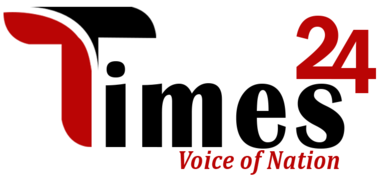The Centre on Tuesday released a protocol that prescribes specific dosages of herbal cocktails to stop and treat the new coronavirus infection although clinical trials to assess their effect on Covid-19 are yet to be completed.
The Union Ayurveda, yoga, Unani, Siddha, and homeopathy (Ayush) ministry has listed several remedies, including formulations supported by ashwagandha, Guduchi, and a product called AYUSH 64, for the prevention or treatment of asymptomatic or mild Covid-19.
The ministry said the recommendations had emerged from a panel of doctors and were supported “knowledge from Ayurveda classics and knowledge from clinical practice, empirical evidence, and biological plausibility, and emerging trends of ongoing clinical studies”.
The protocol lists traditional homemade remedies like warm gargles, turmeric-laced milk, and warm decoctions of spices. It also recommends 500mg ashwagandha, 500mg Guduchi, and 10gm Chyavanaprash for preventive care and a mixture of Guduchi and Pipali and AYUSH 64 for patients with asymptomatic or mild Covid-19.
“These remedies should go alongside standard precautions like masks and physical distancing — they ought to not convey a false sense of security,” Ayush secretary Rajesh Kotecha said.
“We believe supported accumulated evidence that these remedies will help in early cures.”
Kotecha said the expert medical panel led by former Indian Council of Medical Research chief Vishwa Mohan Katoch had taken under consideration in-silico (on the computer), experimental, clinical, and safety studies done over the years in making the recommendations.
There are 254 experimental and 30 clinical studies on ashwagandha showing its immuno-modulatory and anti-viral effects and five in-silico studies suggest that ashwagandha can block the entry of SARS-C0V-2, the virus that causes Covid-19, into human cells, Kotecha said.
Similarly, he said, 38 clinical studies have already established the immuno-modulatory and anti-viral effects of Guduchi, while 25 experimental studies and eight clinical studies have shown the potential benefits from AYUSH 64.
The Ayush ministry had earlier this year initiated multiple clinical trials at sites across India to assess the efficacy of varied Ayush remedies, including ashwagandha, Guduchi and AYUSH 64, specifically against Covid-19. “We also are seeing positive trends from these ongoing trials,” Kotecha said.
However, several principal investigators engaged within the trials told The Telegraph on Tuesday that the trials themselves or their data analysis was yet to be completed.
Data from a nationwide trial by the Central Council for Research in Ayurvedic Sciences seeking to check the efficacy of Guduchi as a preventive agent on around 30,000 people living in containment zones are still “under analysis”, a senior CCRAS official told this newspaper.
The Ayush ministry has initiated six trials on AYUSH 64, of which one trial in Jamnagar, Gujarat, has been completed, the trials’ investigators said. The AYUSH 64 trials in Chandigarh, Delhi, Jodhpur, Hassan (Karnataka), and Ahmedabad aren’t complete yet, they said.
Some doctors have questioned the choice to recommend dosages without sufficient evidence. “None of the remedies listed within the protocol has proved their mettle through controlled trials,” said Shri Prakash Kalantri, professor of drugs at the Gandhi Institute of Medical Sciences, Wardha.
Kalantri questioned the absence of peer-reviewed published evidence demonstrating the magnitude of the advantages from each of the remedies. “We must note that a diseased person may attribute symptomatic relief to an otherwise ineffective therapy thanks to the consequence or the natural recovery from the infection,” he said.
Kalantri and other doctors cautioned that unproven health recommendations could lead to some individuals forgoing potentially effective treatment like dexamethasone. “In waiting, they’ll lose the chance to get timely treatments,” he said.
The Indian Medical Association, the country’s largest body of recent medicine doctors, has also questioned what it’s described because of the government’s effort to introduce traditional systems of drugs into Covid-19 treatment without adequate evidence of their efficacy.
“Science should be supported double-blind controlled clinical trials,” said R.V. Asokan, secretary-general of the IMA. “It is for the claimants to bring evidence of credibility.”
Latest News and updates, Follow and connect with us on Facebook, Twitter, and Linkedin
Get the latest updates directly on your mobile, save and send a message at +91-9899909957 on Whatsapp to start





